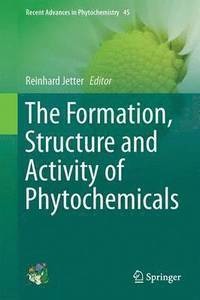
Liknande böcker
Human Serum Albumin: Structure, Binding and Activity
Bok av Dianne Cohen
Human serum albumin is found in the intravascular and extracellular space and is the main protein of human blood plasma. Human serum albumin binds water, cations (such as Ca2+, Na+, K+), fatty acids, hormones, bilirubin, thyroxin (T4) and pharmaceuticals. Structurally, the serum albumins are similar, each domain containing five or six internal disulfide bonds. In the opening chapter of Human Serum Albumin: Structure, Binding and Activity the authors review, the structure, content and binding of HSA. Then, the role of albumin in free radical trapping activities and as an oxyradical scavenger is described. A discussion of recent advances in the use of the antioxidant properties of human serum albumin to make drugs detectable in vivo is also presented. Human serum albumin has one tryptophan residue and shows a characteristic fluorescence of around 350 nm under ultraviolet irradiation. Because tryptophan is easily oxidized by reactive oxygen species and/or photoexcited molecules through electron transfer (leading to fluorescence diminishment) a fluorometry of this tryptophan residue is a useful tool to evaluate oxidation. In light of these characteristics, the authors examine the photosensitizing activity of organic photosensitizers, including porphyrins and phenothiazine dyes. The use of magnetic resonance imaging and spectroscopy for the determination of human serum albumin structure, drug binding and in vivo activity is explored, in addition to drug modifications using human serum albumin. Following this, this compilation studies the major approaches for the characterization of human serum albumin as a fluorinated drug delivery agent and fluorinated albumin influence on drug binding. Synthesis and characterization of fluorinated conjugates of albumin and adsorbed human serum albumin on surfaces containing CF3 are also discussed. The concluding study investigates possible similarities and differences in albumin concentration and the presence of tyrosine in urine from a population of healthy and microalbuminuria dependent women. The assessment of subtle changes in albumin concentration, the primary macromolecular component of urine, is critical for the diagnosis of early stage albuminuria, one of the major complications in nephropathy.







